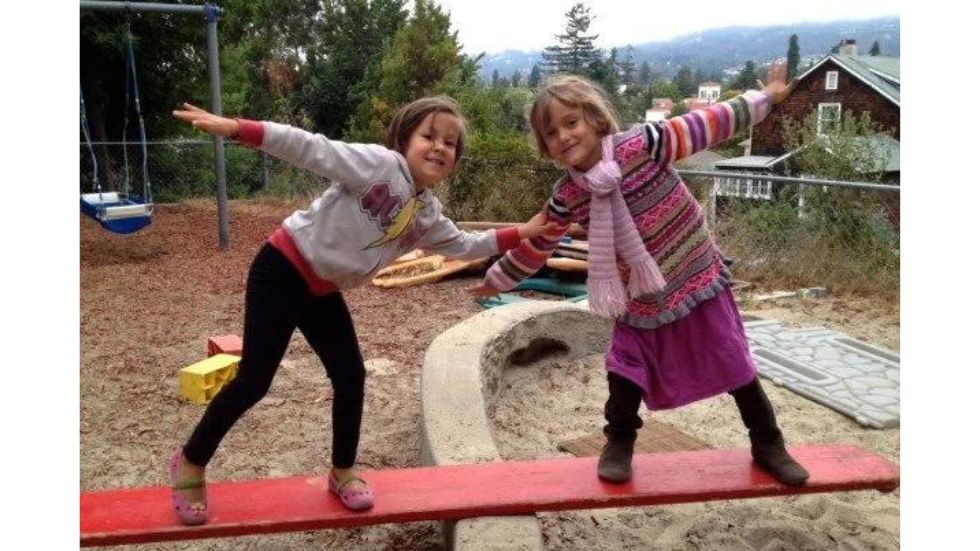
by Lisa Fuller | May 12, 2015 | Communication, Encouragement, Feelings & Emotions, General, Parenting, Sibling Issues

Practice Scripts for Parents: So you can stop unwittingly contributing to your children’s fighting
In Part One we looked at the tremendous learning that results from sibling relationships.
In Part Two we looked at the importance of staying out of your kids’ fights after establishing — and repeatedly reminding kids of — family rules and expectations. (Here’s the index with all of the resources.)
Here in Part Three we’ll explore what you do, unintentionally, to increase sibling acrimony and what you can specifically, say or do instead.
Imagine …
Scenario 1: You’re at a work meeting with your colleague (Joe) and your boss (Big Cheese). You and Joe present what you’ve been working on for the last month at which time Big Cheese looks Joe in the eye and says, “Joe what you’ve done here is outstanding work— you’re exceptional, you really are.”
Be with that. What runs through your mind, your heart?
Scenario 2: You come home after what’s been a bad day and share with your spouse what happened at work, “I just finished this huge project. Joe and I presented it to the Big Cheese, and well, you had to be there, but I felt really unappreciated. It made me feel like crap actually. I put so much of myself into that project, but he didn’t recognize me at all.”
Then your spouse replies, “You know you make a difference — the work couldn’t have been done without you. You need to remember you’re good enough whether someone tells you or not.”
Be with that. What runs through your mind, your heart?
While these are adult scenarios, what they illustrate are common mistakes we make with our children. Sometimes, daily.
The first scenario highlights the perils of praise — the non-specific superlative — and how the use of praise is particularly detrimental to the sibling bond.
How did you feel when you imagined yourself in the scenario?
In parenting class we role-play a parent praising one child but not the other. The volunteer playing the sibling not receiving praise — without exception — feels badly about themselves and usually resentful of their praise worthy sibling.
The un-praised sibling goes on to assume that the accolades lavished on sister or brother mean they’re destined to fall short… big time. Right or wrong this is a predictable human response.
In scenario 2, I’ve put the spotlight on how the denial of feelings, while well intentioned (like praise), is in fact discouraging because it communicates that we’re wrong when what we crave is to feel understood.
Below are four parent behaviors that hurt sibling relationships, followed specific examples of what they sound like and what you could say instead.
PRAISE ➜ ENCOURAGE
- Wow — you’re the fastest swimmer out there! ➜ I love to watch you swim!
- You’re such a good boy! ➜ I appreciate your help, you made my day easier.
- With more work, you’ll get it right. ➜ Look how far you’ve come, you can do it.
DENY FEELINGS ➜ ACKNOWLEDGE FEELINGS
- Just get along — she’s your sister! ➜ It sounds like you’re feeling really sad and hurt.
- Don’t say you hate your brother — that’s not nice. ➜ It looks like you guys aren’t getting along right now and could use some time away from each other.
COMPARISON ➜ DESCRIBE BEHAVIOR (put kids in the same boat)
- Why can’t you just be nice like your sister!? ➜ I can see you’re really cranky right now… come find me when you decide you’re ready to talk.
- Why do you always make things so difficult? ➜ Kids, I have faith that the two of you can work this out together. Come find me if you need help.
LABEL ➜ DESCRIBE WHAT YOU SEE, FEEL OR THE PROBLEM
- You’re the family artist. ➜ You really love to create!
- Why are you always such a bully? ➜ I see that the blocks are all over the floor, what can you do to help the situation?
- I can’t take it — you’re such a slob! ➜ Milk is all over the floor — what do you need to clean it up?
When spelled out like this, it’s crystal clear to me that [tweetthis] conscious parenting is a practice, not the default for any of us.[/tweetthis]
So it’s time to practice!
I know how hard it is so I created this Script to make it a bit easier.
Download it — print the pages you find helpful and PRACTICE.
Share your insights, questions and feedback below or write to me privately. I’d love to hear from you.

by Lisa Fuller | Apr 26, 2015 | Conflict, General, Parenting, Self-regulation, Sibling Issues
Here’s Part Two of the 3 part Sibling Series: More Good, Less Ugly: Everything you Need to Know to Foster Healthy Sibling Relationships. In case you missed it, you can check out Part One here.
A month ago, after a parent education talk (ironically, NOT about sibling issues), parents came up to me afterwards wanting to ask specific what do I do when questions.
This night each parent had a sibling challenge that deeply distressed them — and they wanted advice on how to work them out — how to FIX them.
After each told me their story of fists, tears, tussles and injustices, I asked, sincerely, so you want this to stop because ________?
It sounds like a joke but I was serious.
Here’s a snippet of their answers (and my thoughts):
- I don’t want my kids to fight. Period. (We get confused thinking peace equals the absence of conflict — not true)
- I’m afraid my children will seriously hurt each other — (it won’t happen if your kids have some skills — it makes sense to focus on teaching these skills).
- I was mistreated and abused by my siblings and my parents did nothing (if you’re reading this post, or trying to understand the issues, you’re not doing nothing. You’re learning how to respond rather than react).
It’s important for you to get to the bottom of your frantic need to end sibling fights.
When you feel desperate, your children tune into your urgency and — baBOOM! — their fights gain greater importance and power.
No matter what age they are, you can see the wheels turning in their mind… “Hey, I’m onto something here — mom’s lost her mind over this bickering — it’s energizing to have her so plugged in so I’m going to persist and/or do it again soon.”
[tweetthis]Even if a child is scared, negative engagement with you is better than the alternative, no connection[/tweetthis]
Your children are wired to get your attention (think survival) and this sibling stuff is just the ticket.
So what if you don’t react when the fight breaks out, and instead acknowledge them by:
- Letting them know you notice what’s going on and you’re here if they need your help (hint: think of yourself as a consultant rather than a cop) or
- Saying, “I can see you’re struggling with each other and I have faith that you’ll be able to work it out together.”
What’ll happen next? They’ll be flabbergasted that you haven’t jumped in to fix or solve.
Jane Nelsen says surprise leads to confusion. When a child is confused because she doesn’t get the reaction she’s used to, she’s ready to consider a new behavior.
- If the surprise results from a respectful interaction, her confusion will include a feeling of belonging and encouragement, so her new behavior is likely to be positive.
- If the surprise is a result of disrespect, then her previous misbehavior is likely to intensify.
After a recent sibling talk I got this email from a mom who’d bravely tried what I’d suggested, the very next morning:
Hi Lisa,
I wanted to tell you my success story from this morning. I feel like one of the examples from the book (Siblings without Rivalry), I was so surprised at its effectiveness!
This morning my 5.5yo son Eden left his favorite transformer toys on the floor, and his 1.5yo sister Lulu ran to them and started playing. He saw that, ran over, and pushed her backwards so her head banged the floor (she’s had worse bumps, but it was still rough and it hurt her).
I calmly went over and said, “Do you two need some help? Lulu doesn’t know why you pushed her. Use your words to tell her. I know you two can work this out. I’m going in the kitchen now so you can work it out.”
I walked away as Lulu whimpered a few times, just sitting next to her brother, probably unsure why I hadn’t defended her better.
Only 5 to 10 seconds after I walked away, Eden said, “Hey Louie, do you want another one?! I’ll get you one!” and jumped up to get her the one transformer he wasn’t playing with. He gave it to her, she happily accepted, and she scooted away a few inches to play with it in her own space.
I COULDN’T BELIEVE IT! It was exactly like the book and you said it would happen! Even though it worked so well, I admit I felt a bit guilty about seemingly abandoning Louie to her big brother in a moment of distress. But I get that their relationship benefitted from his problem-solving so much more than if I had stepped in.
Based on the book, if we can be consistent with this kind of conflict resolution, soon both kids will not feel this as abandonment, but as empowerment instead.
–Rachel
This story beautifully illustrates that [tweetthis]you don’t stop teaching your kids just because you don’t get involved in the moment of conflict.[/tweetthis]
Rachel admits the guilt she felt in trying a new behavior — I think many of us don’t try new tools and responses, even though they may be more effective in the long run, because of the dreaded parent guilt – what’ll happen if it doesn’t work?.
There may be times when you want to step in — how do you do that without fixing?
Here are three Positive Discipline Tools to help in the moment with a dispute between young children:
- DISTRACTION — “I’ll give you something else to do now.”
- SEPARATION — “Let’s move you over here for now.”
- PUTTING KIDS IN THE SAME BOAT and recognizing that CHILDREN DO BETTER WHEN THEY FEEL BETTER — “I’d like to read you both a story now – it will help put us in a good mood. Then you can try to play together again… when you both feel better.”
So often when you plunge into a sibling fight, you think you know what’s going on.
This week, pretend you don’t and put the kids in the same boat.
Do your best to stay out of their business (or consult from the sidelines), and see what happens.
Please share your thoughts in the comments below.
If you’re not already on the list, sign up to receive Part 3 of the Sibling Series: From Squabbles to Sharing: Proven Strategies to Improve Sibling Relationships by email.

by Lisa Fuller | May 27, 2014 | Communication, Cooperation, Discipline, Encouragement, General, Parenting
It’s a typical morning, nothing out of the ordinary.
The boys haven’t brushed their teeth and I’m yelling, BRUSH! And then Get your rears in the car NOW.
It feels like we do this every. Single. Day.
When I get in the car, I feel down – this isn’t how I want my boys to get off to school in the morning. Yelling let’s go, let’s go, let’s gooooo! – Probably isn’t the most inspirational start to their day.
Sound familiar? I know we all prefer mornings with our kids to be fueled by calm cooperation instead of high-volume threats and pleas!
It is possible.
I got the idea to create scripts because in a parenting class while role-playing a conversation, between a parent and teen (forgetting to talk out the garbage), using Positive Discipline tools, an observing parent vigorously raised her hand, “You were going really fast just then and I’m not sure what happened but it sounded awesome. Could you go through it again but this time slowly so I can understand?”
At first, the words may feel a little stiff or clunky – just like training wheels – but it’s worth giving them a try. Especially if you leave the house in the morning shaking your head (or crying), wondering why parenting is so darn hard.
The Conversation Guide slows down the parent child interaction. Think of it as parenting in slow motion, word by word, so you can rewind at any time.
It’s true, there are many ways to parent that fit with the Positive Discipline principles. My hope is that the four approaches I’ve offered here give you confidence to find your genuine voice. One that’s both kind and firm – respectful of your child and yourself.
Okay, back to my morning with the boys… what could I have done differently? Let’s see what happens when I ask a question instead of yelling demands at them.
“Guys, what do you need to do before you get in the car for school?” They actually mumble “brush our teeth…”
“Yes, great, I’ll meet you in the car when you’re done.”
Does that sound too easy? With enough repetition, time and the resulting trust, it works.
And if you get zero response to your question – or just eye-rolling – you can calmly let them know you’ve decided to wait in the car until they’re ready (take a good book so you’re doing something pleasurable while you serenely wait).
The two keys are:
- You follow through with what you say you’re going to do – this builds trust
- You remain calm, cool and collected – trust x 100
CONSIDER⇔SHARE⇔ACT
What get’s in your way of having that calm morning you so desire?
What’s worked for you?
What gets in the way of you practicing these scripts? Share in a comment below so we can learn from each other.
If you haven’t already done so, join me on this journey!
Wanna talk? Schedule a time here.






